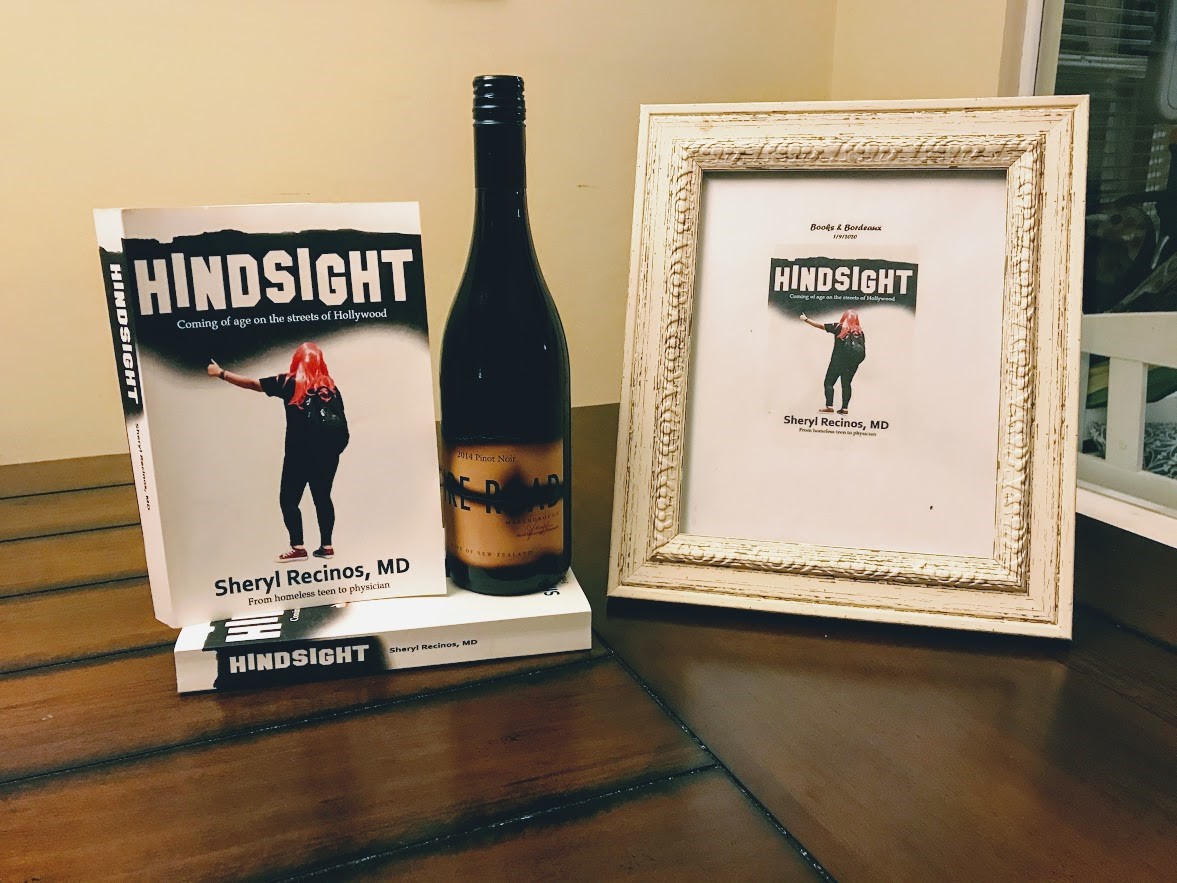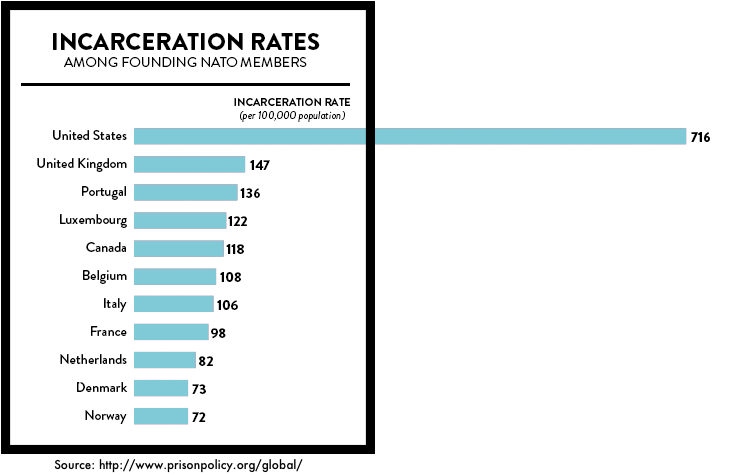Books & Bordeaux
Book Reviews, Discussion Guides, and Wine-Book Pairings
“Call no man happy until he is dead. Herodotus.” Mr. Nancy raised a white eyebrow, and he said, “I’m not dead yet, and, mostly because I’m not dead yet, I’m happy as a clamboy.” “The Herodotus thing. It doesn’t mean that the dead are happy,” said Shadow. “It means that you can’t judge the shape of someone’s life until it’s over and done.”
Hindsight: Coming of Age in the Streets of Hollywood: Shining a Light on Vulnerable Populations in America

Hindsight: Coming of Age on the Streets of Hollywood by Sheryl Recinos is a deeply upsetting first-hand account of Recinos’ time homeless in Hollywood, CA and the events that led her there. Recinos’ straight-forward style of telling you her story with almost no hindsight clears the way for the reader to put themselves in her shoes. What could you have done differently? What outcomes would you been unable to change? When you read her story, you may end up asking yourself: Can you change the outcome for someone else?
I am so pleased that we found out about this book from one of our members’ personal connections with the author, Sheryl Recinos! By sharing her personal story on such an intimate level, she is making a brave move. I think she is writing her story to stand up for herself, for others in similar situations, and to bring light to how our social systems treat vulnerable people. In a country with limited resources, what can we change, what should we change, and what do we need to change? Is there room to treat people with more respect?
Jump to Hindsight discussion questions
Recinos has been recognized with several awards for Hindsight, including Outstanding Non-fiction from the Ian Book of the Year Awards and the Bronze Medal from Readers’ Favorite 2019 International Book Awards in the nonfiction, #YA category.

All of the social structures that Recinos encountered left me with questions and the knowledge that something isn’t working. For instance:
If you thought it was weird that Recinos was
maybe it was…
–Hillary Rodham Clinton (D), speech on criminal justice at Columbia University, April 29, 2015
Around the globe, governments respond to illegal activity and social unrest in many ways. Here in the United States, policymakers in the 1970s made the decision to start incarcerating Americans at globally unprecedented rates. The decades that followed have revealed that the growth in the U.S. prison population can be more closely attributed to ideological policy choices than actual crime rates. The record also shows that our country’s experiment with mass incarceation has not managed to significantly enhance public safety, but instead has consistently and disproportionately stunted the social and economic wellbeing of poor communities and communities of color for generations.
– PrisonPolicy.org
Because of Recinos willingness to share, we all get to experience a first-person view of several of our country’s systems: the penal system, the baker act, homeless shelters, and teen shelters. It’s hard to imagine what the workers in these systems must experience, seeing people come through again and again, because the system perhaps didn’t help them the first time.
Earlier in the book,
To fill in the blanks, Baker Acting someone is when the police take a person to a mental health facility because you believe they are mentally unstable or a danger to themselves and they will not voluntarily seek similar mental health aid. In most states, if one person says you are a danger to yourself or others, you can be held against your will for 72 hours and you do not generally get a phone call. In some cases, they will give you medication without providing a diagnosis and without allowing you to talk to a doctor. In Colorado and a few other states, they have changed their Baker Acting procedures, and a court or jury has to determine whether or not you are a danger before you are held against your will.While writing this post, I wanted to find out how homelessness was being addressed outside of America, and I came across this article: Finland recently reduced its homeless population by 40%. To address homelessness in their country, they’ve been providing housing to the people who needed it most. In addition to the human and economic goals of leading people back towards stability, the country will likely experience a financial return, as the result of this effort is expected to provide Finland with an 80% reduction in acute emergency hospital costs for the recently homeless population now that they have housing.
In all of the social systems we’ve discussed, what needs to change in order to allow the people working in these various systems to be trained in trauma-based care, to have access to their own mental health resources (their jobs aren’t easy), and to increase transparency of information?
During our discussion for this book, we all agreed we were happy that Recinos shared her story. We were also aware that she was a single voice. We really wanted to hear what other people around her had to say. Specifically regarding some of the events surrounding her family, we got a real sense that she was telling the truth—perhaps just not all of it. Also, I know I extrapolated that her goal in not including any hindsight or editorializing of her own behavior and actions was a purposeful move, one made to allow the reader to make their own decisions and judgments. However, it did make me a little frustrated that she didn’t state how she felt about some of her actions that were, in my mind, questionable. When she returns to the guy who held her at gunpoint, she doesn’t even guess at why she would place herself in that kind of danger. When she steals clothes for no given reason, she doesn’t say whether she felt bad or good or nothing at all, or how she feels about it now. These are things I wish I knew.
As a group, we were amazed at all that Recinos had overcome.
We’ll just have to wait for book 2!

Sheryl Recinos Gives a Voice to Vulnerable Communities
Recinos elevates the conversation on homelessness in America by making the issue deeply personal rather than off the highway behind a layer of dust and a cardboard sign. Her story brings to light the invisibility of homeless people, and their vulnerability to predators—particularly homeless youth.
She elevates the conversation on the rights of minors, their pathways and resources to escape abusive households, or to seek counseling for households in distress.
She elevates the conversation on mental health, our awareness or lack of awareness of the symptoms of different disorders and traumas, and benefit of having open conversations within the household and beyond. Without stating it outright, you could see how painful and harmful it was that none of the adults in Recinos’ life ever had an open, compassionate conversation with her about her mental well-being.
Recinos shares this in an interview for UCLA “Writing my memoir finally put the horrors of my childhood into words and ultimately allowed me to forgive myself for the choices I had to make as a homeless teen. Since releasing this book, I’ve sparked an important dialogue about invisible youth living on the streets.” She’s recently published a series of middle grade fiction called The Resilience Group with the goal of helping children and adolescents through adversity. What an amazing idea! I hope there are copies in every school, shelter, and foster home–if it helps even one young person find their voice it will be worth all of Recinos’ hard work.
Wine Selection & Tasting Notes
Fire Road Pinot Noir. This wine offers unexpected flavors and a gorgeous ruby red glow. The scent is potently smoky and earthy with red fruit underneath. Red plum, red apple, and mellow oak on the palate. Clean finish. No tannins. Light bodied. There is a bright note that could be apricot.
Hindsight Discussion Questions
- Coming soon!